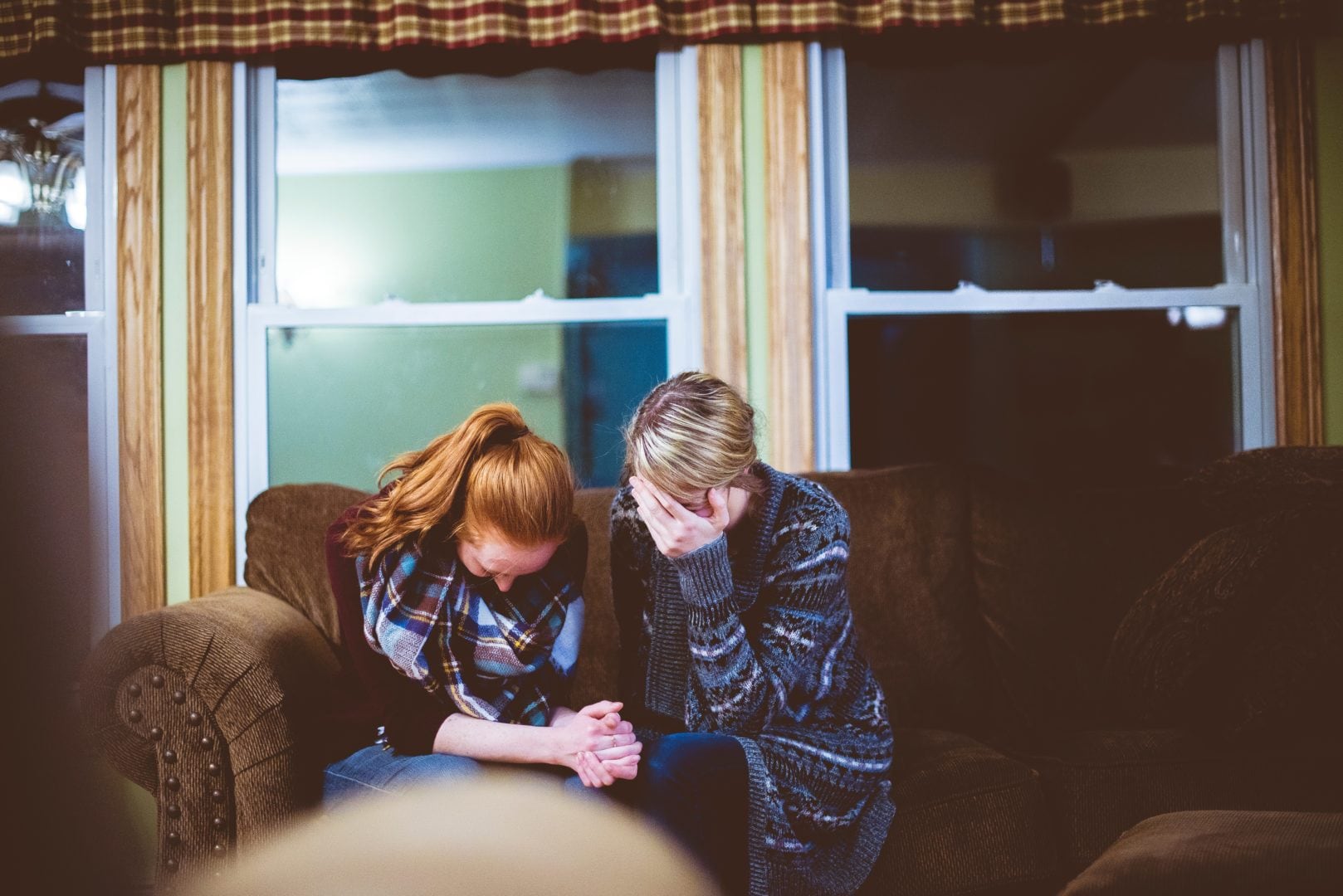Affairs happen.
We all think we’re immune to it, but sadly, we’re not. According to the American Association for Marriage and Family Therapy, national surveys find that, on average, 25 percent of American men and 15 percent of American women are unfaithful to their partners — and those statistics waver from year to year. Some marriages survive the breach, but many others end up in divorce court where they have to split up both assets and parenting time.
Regardless of the outcome, many parents find themselves wondering: But what about the kids? Should we be brutally honest and tell them about the affair? Or would it be better for them if the truth were locked away in a vault, never to see the light of day?
The simple answer is this: there is no simple answer.
As with any parenting dilemma, the answer to your question of what — and how much — to share with your kids will vary, depending on who you talk to. We did some research on the topic and pulled out insights from a number of parenting and relationship experts. Unsurprisingly, their answers range from “Definitely” to “Absolutely not.”
“Yes, Definitely Tell the Kids”
Those in favor of sharing this information would argue that children have a right to transparency within their own family unit. They deserve to know why mom and dad are arguing, or why one parent left the family home.
In her LiveAbout.com article, “Children and Infidelity: Should You Tell Your Child About the Affair,” divorce support expert Cathy Meyer explains that while discussing the matter with the children may be unpleasant, it’ll actually serve to build a more trusting and loving relationship with them in the long run.
“Admitting to an affair will likely cause problems in your relationship with your child. But, rebuilding and working through the anger your child feels will be easier if you are honest with him or her from the beginning,” Meyer writes.
In his book, “Private Lies: Infidelity and Betrayal of Intimacy,” Dr. Frank Pittman pushes parents to disclose everything to their children. In his view, keeping secrets from family members will essentially rob the family of closeness and create disorientation — which can have an unexpected ripple effect.
“Children who experience secrecy and lies cannot trust what they are told. They become insecure and dependent,” explains Pittman. “When the framework of the family finally collapses, there may be no honest relationships to fall back on. The children feel cast adrift.”
Meyer and Pittman clearly approach the issue from the standpoint of building trust with children during a difficult time. On the other hand, Dr. Willard F. Harley, Jr., a clinical psychologist and marriage counselor, has written about how he views it as more of an issue of accountability and repentance — particularly for those couples who want to stay in the marriage.
Specifically, he believes that complete disclosure with those closest to the couple, including young children, will help to prevent a recurrence or continuation of the infidelity.
In a book that he co-wrote with Dr. Jennifer Harley Chalmers, called “Surviving an Affair,“ he explains, “Exposure is very likely to end the affair, lifting the fog that has overcome the unfaithful spouse, helping him or her become truly repentant and willing to put energy and effort into a full marital recovery.”
In fact, Harley and Chalmers argue that children as young as seven should be informed about parental infidelity, as should any extended family, friends, clergy and even the “other person’s” spouse.
Absolutely Not!
Now, let’s move to the opposite end of the spectrum and examine advice from those who believe that sharing too much with the children would do more harm than good.
In her e-book, “How Do I Tell the Kids about the Divorce? A Create-a-Storybook Guide to Preparing Your Children — with Love!” divorce and parenting coach Rosalind Sedacca explains, “Unless they are a celebrity’s or a politician’s kids who unfortunately learn about it in the news, this is not a topic to discuss with your children unless they are 18 or even older. This is adult business of the most complex nature and cannot be assimilated into explanations for children.”
Those who share this view argue that not only are children ill-equipped to handle information of this magnitude, but also that infidelity is a marital issue between the spouses — not one that should involve the kids or the rest of the family.
Rick Reynolds, licensed clinical social worker and founder of AffairRecovery.com, has his own personal experience with this type of situation. Prior to starting the online infidelity support group, Reynolds was unfaithful to his wife, to whom he is still married some 30+ years later. Now, as one of America’s foremost authorities on healing from extramarital affairs, Reynolds believes that unless the children are at risk of finding out, the information should not be shared.
“Children do not need to be involved in the marriage,” explains Reynolds in an interview he did with Mary Fetzer of SheKnows.com. “They need to have the opportunity to have a healthy relationship with both parents, regardless of whether someone has made the mistake of having an affair.”
In fact, bringing the children into the heart of the marital discord could be detrimental to their emotional health, argues Dr. Gayle Peterson in a Q&A she posted on her blog, AskDr.Gayle.com. They’re likely already aware of strain between their parents and may be feeling insecure as a result. Putting the details of the infidelity in their faces is likely to do nothing more than add to their level of stress, and may even compel them to take sides. Though Peterson is not necessarily condoning secrecy, she does believe it’s unwise to involve the kids in the conflict.
“It is possible that this could be treated as an issue of privacy, if your children are not aware or do not want to deal with this information at this time,” she continues.
Well, It Depends
Of course, some experts like psychiatrist and relationship researcher Dr. Scott Haltzman, believe that it’s not quite so black and white. In his Psychology Today article, “Should the Children Know You’ve Had an Affair,” Haltzman advises couples to consider a number of factors before deciding whether or not to bring the children into the fold.
For example, if the couple chooses to stay married — assuming the “other person” is no longer in the picture — it may be best to keep the information under wraps. But, what if that person is someone close to the family? What if there’s a good chance that word will get out about the affair? And what if the affair created significant tension between the parents? In his article, Haltzman explains that these are the kinds of situations where parents should consider being fully transparent with their children.
Haltzman also recommends full disclosure in the event that the unfaithful partner chooses to leave the marriage to pursue the extramarital relationship.
“If the children are of an appropriate age, they deserve a clear explanation of what is going on,” he notes.
No Matter What You Decide to Do, Do It Together
As you can see, there is no “one-size-fits-all” solution to this question.
If there was, we’d see unanimous agreement among the experts in the field. Telling your kids about infidelity is a personal decision that needs to be made by parents, based on individual circumstances.
The thing that most experts agree on, however, is that parents need to present a united front in communicating with the kids. Agree together on what information will and will not be shared, as well as the motivations behind the decision.





